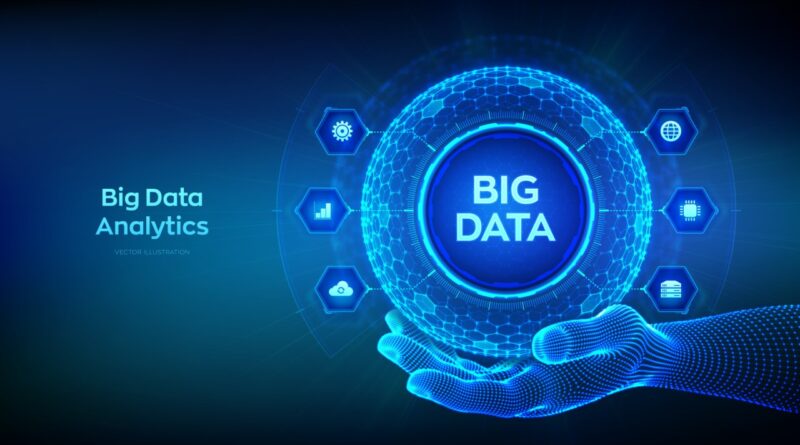The Role Of Big Data In Decision Making

Introduction
In today’s digital world, businesses and organizations generate massive amounts of data every second — from customer interactions and online purchases to machine sensors and social media activity. This flood of information, often referred to as Big Data, has become one of the most valuable assets for decision-making.
Big Data is not just about collecting huge datasets. It’s about analyzing, interpreting, and applying insights to improve business strategies, enhance customer experiences, and streamline operations. When leveraged effectively, Big Data transforms decision-making from a process based on intuition to one driven by evidence, prediction, and real-time insights.
This article explores the role of Big Data in decision-making, its applications, benefits, challenges, and the future of data-driven strategies.
1. Understanding Big Data
Big Data refers to large and complex datasets that are too vast for traditional data processing tools to handle. It is often characterized by the “5 Vs”:
- Volume – The massive amount of data generated every second.
- Velocity – The speed at which data is created and must be processed.
- Variety – Data comes in multiple forms: structured (databases), semi-structured (XML, JSON), and unstructured (text, video, audio).
- Veracity – Ensuring data accuracy and reliability.
- Value – The actionable insights businesses can extract.
Without proper analysis, Big Data is just “noise.” Its true power lies in uncovering patterns, predicting outcomes, and supporting smarter decision-making.
2. The Importance of Big Data in Decision-Making

Traditionally, business decisions were based on experience, assumptions, or limited market research. Today, Big Data empowers organizations to:
- Make Evidence-Based Decisions: Replacing guesswork with factual insights.
- Predict Future Trends: Analyzing past behaviors to forecast outcomes.
- Personalize Customer Experiences: Using customer data to tailor services and products.
- Optimize Operations: Identifying inefficiencies and reducing costs.
- Manage Risks: Detecting fraud, predicting failures, and preventing crises.
In short, Big Data reduces uncertainty and strengthens confidence in decisions.
3. Applications of Big Data in Different Sectors
a) Business & Marketing
- Customer Insights: Companies analyze shopping behaviors, social media activity, and feedback to understand customer needs.
- Targeted Advertising: Big Data enables personalized ad campaigns that reach the right audience at the right time.
- Product Development: Feedback and usage data guide innovation and product improvements.

b) Healthcare
- Predictive Analytics: Helps doctors anticipate disease outbreaks or patient needs.
- Precision Medicine: Data-driven insights allow personalized treatments based on genetic profiles.
- Operational Efficiency: Hospitals use data to manage resources, reduce wait times, and improve patient care.
c) Finance
- Fraud Detection: Analyzing transaction patterns helps identify unusual activities.
- Credit Risk Assessment: Banks assess loan eligibility by analyzing customer financial history.
- Algorithmic Trading: Big Data enables real-time decision-making in stock markets.
d) Manufacturing & Supply Chain
- Predictive Maintenance: Sensors collect machine data to predict breakdowns before they occur.
- Demand Forecasting: Helps companies anticipate product demand and manage inventory.
- Supply Chain Optimization: Data insights improve logistics, reduce delays, and cut costs.
e) Government & Public Policy
- Smart Cities: Big Data powers traffic management, energy efficiency, and waste management.
- Policy Making: Data helps governments analyze social issues and craft evidence-based policies.
- Crisis Management: During natural disasters, data guides emergency responses and resource allocation.
4. Benefits of Using Big Data in Decision-Making
- Speed & Agility: Real-time data analysis supports faster decision-making.
- Accuracy: Reduces the likelihood of errors compared to intuition-based choices.
- Competitive Advantage: Businesses leveraging data often outperform competitors.
- Innovation: Identifies opportunities for new products, services, and markets.
- Cost Reduction: Pinpoints inefficiencies and reduces waste.
5. Challenges in Using Big Data for Decision-Making

Despite its potential, organizations face several challenges:
- Data Overload: Managing and analyzing vast datasets can be overwhelming.
- Data Quality Issues: Inaccurate or incomplete data leads to poor decisions.
- Privacy Concerns: Handling personal data responsibly is crucial to avoid legal and ethical issues.
- High Costs: Advanced analytics tools and infrastructure require significant investment.
- Skill Gaps: Many organizations lack data scientists and skilled analysts.
Overcoming these challenges requires proper governance, ethical policies, and investments in technology and talent.
6. The Future of Big Data in Decision-Making
As technology evolves, Big Data’s role will become even more significant:
- Artificial Intelligence (AI) Integration: Machine learning algorithms will deliver deeper insights and automate decision-making.
- Real-Time Analytics: Businesses will rely more on instant data processing for fast-changing markets.

- Predictive & Prescriptive Analytics: Moving beyond “what happened” to “what will happen” and “what should we do.”
- Data Democratization: Tools will make data insights accessible to all employees, not just data scientists.
- Ethical Data Practices: Transparency and data security will be essential to maintain trust.
